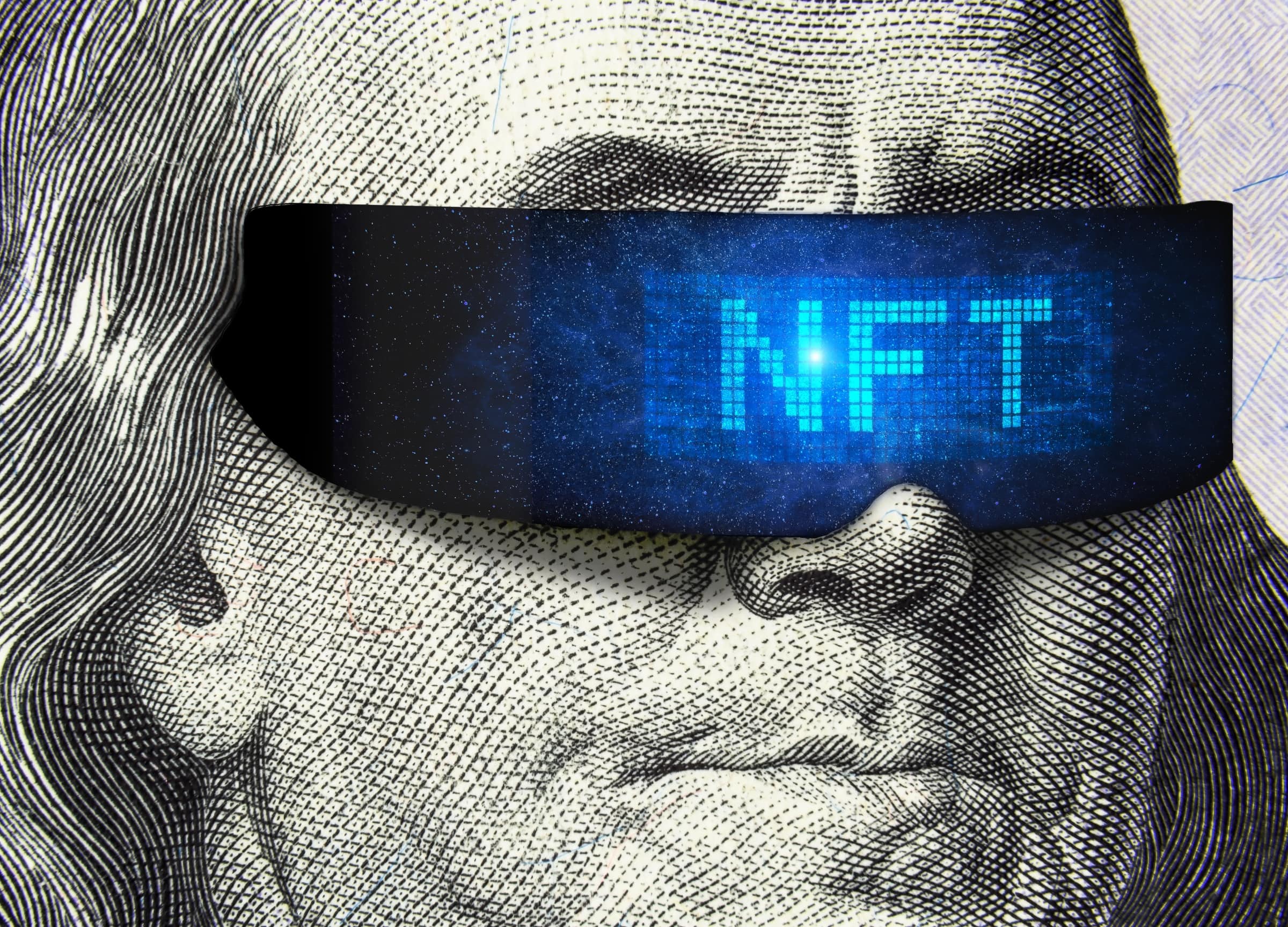
- Investment ideas
Investing in NFTs: pros and cons
Do you want to know how to make money from this?
Register for free and get expert advice, access to a training course and webinars.
Recent market trends confirm that investors and traders are increasingly paying attention to modern technologies. This is confirmed by the hype around artificial intelligence and the rapid growth of Bitcoin. But there is another technology that is worth talking about in the context of investment – and that is NFT.
Non-fungible tokens (NFTs) are assets that have been converted into digital form using blockchain technology. Each NFT represents a unique identification code generated from metadata using cryptographic algorithms. These codes are stored in a distributed registry (blockchain), and the assets themselves are stored on other platforms or storage facilities. The connection between a token and an asset ensures their uniqueness.
NFTs can be traded, exchanged for cash, cryptocurrencies or other NFTs. The value of the token is determined by the market and the owners.
Investing in NFTs has its pros and cons – we talk about them in detail.
Benefits of investing in NFTs
Investors are interested in buying and selling assets represented as NFTs for a number of reasons. Here are some of the benefits:
Accessibility for everyone. NFT markets have a wide and global reach, meaning potentially endless demand. This can lead to an increase in the value of the token if their supply is limited. Anyone in the world with a computer, internet connection and knowledge of how NFT trading platforms work can invest.
Availability of digital contracts. NFTs can be used to digitally represent any object whose ownership needs to be documented. The ability to instantly create, review and transmit an electronic contract eliminates the need for legal services and reduces the time and costs associated with drafting, managing and storing paper contracts.
Reliable legal evidence. Non-fungible tokens are developed and hosted on the blockchain and compatible wallets. The blockchain is a tamper-proof ledger, making it easier to prove ownership of an asset and more difficult to challenge it in court.
Fractional ownership. Ownership of properties can be effectively divided in primary markets and quickly resold in secondary markets to hundreds, thousands or millions of investors. This increases the liquidity of markets for such products and opens up an alternative route for streamlined crowdfunding.
Disadvantages of NFTs
Investing in NFTs also has a number of disadvantages that need to be taken into account:
Lack of regulation. As with cryptocurrencies, the NFT market is decentralized and, moreover, even less regulated at the moment, meaning there is no legislation to protect investors and consumer rights. This can lead to market manipulation, fraud, misinformation and speculation.
Fraud and crime. The ease of creating NFTs and trading platforms for them makes this area attractive to scammers. Fake NFTs, questionable asset sources, and anonymous transactions all create risks for buyers and sellers.
Need for additional knowledge. Storing and managing NFT wallets requires technical knowledge and skills. Mistakes can lead to the loss of access to the NFT, and hacker attacks can lead to the theft of the asset.
Dual investment structure. The value of an NFT depends on the value of the underlying asset, but does not always correspond to it. When investing, you need to consider both the characteristics of the NFT and the characteristics of the underlying asset.
Do you want to know
How to make money from the news
Register for free and get:
- Expert consultation;
- Access to the training course;
- Opportunity to participate in webinars

